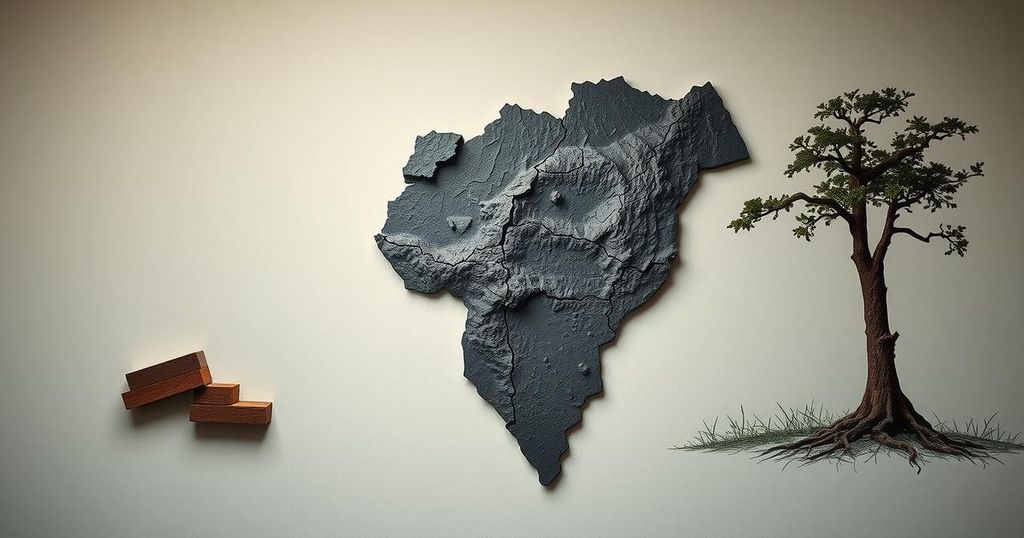The M23 rebel group has intensified ethnic conflict in eastern DR Congo by alleging persecution of Tutsis. Despite claims of defending Tutsi rights, the M23’s actions have drawn condemnation for atrocities, revealing a history of discrimination against Tutsis and Banyamulenge. The situation underscores complex ethnic dynamics and the challenges of national identity in DR Congo amid ongoing violence and political manipulation.
The M23 rebel group has unleashed chaos in eastern Democratic Republic of Congo (DR Congo) by capturing major cities, leading to mass displacement. Central to their agenda is the claim that ethnic Tutsis face persecution in the country. However, the complex dynamics of Tutsi identity in DR Congo and their historical associations with Rwanda prompt a closer examination of this situation.
International bodies, including the UN and US, have condemned the M23 for alleged war crimes, complicating their narrative of defending Tutsis. Regional analysts suggest that the M23, supported by Rwanda, is primarily motivated by the desire to exploit DR Congo’s abundant mineral resources rather than a genuine interest in protecting local Tutsis.
The Tutsi population in DR Congo is estimated in the hundreds of thousands, yet many do not endorse the actions of the M23. Despite this, historical evidence supports the existence of systemic discrimination against Congolese Tutsis and their sub-group, the Banyamulenge, highlighting ethnic hatred manifesting through violence, discrimination, and political hostility.
The root of the discrimination stems from the association between Tutsis and Rwanda, especially following the Rwandan genocide in 1994, which fueled anti-Tutsi sentiments in DR Congo. As the Tutsi and Banyamulenge communities grew in DR Congo, their status fluctuated based on the political climate.
The citizenship rights for Tutsis shifted dramatically in the 1980s, resulting in many losing their nationality and becoming stateless. This period was marked by numerous massacres against Tutsis and Banyamulenge at the hands of both state forces and local militias, with deep-seated anti-Tutsi sentiment continuing into the present.
Although the current constitution recognizes the Tutsi and Banyamulenge as Congolese, evidence of discrimination persists. Reports indicate that the Banyamulenge community is perceived as a threat by surrounding populations, perpetuating hostility and violence.
Statements from local activists and academics underline the sentiment of ongoing discrimination. For instance, Muragwa Cheez Bienvenue recalls being targeted due to his ethnicity, while economic researcher Bukuru Muhizi relates a tragic family history marked by violence stemming from their identities.
Despite official statements asserting that discrimination is being addressed, individual accounts signal a contrasting reality. Political leaders, including President Félix Tshisekedi, have acknowledged the need to combat anti-Tutsi rhetoric, but skepticism remains regarding the government’s commitment to protecting Tutsi and Banyamulenge rights.
In conclusion, the Tutsi communities in DR Congo grapple with a fraught identity marked by historical trauma, systemic discrimination, and a complex interplay of local and regional politics. Their plight reflects a broader narrative of ethnic tension and the struggle for belonging in a nation riddled with conflict and strife.
The situation of Tutsis in the Democratic Republic of Congo is marred by a complex history of discrimination and conflict. While international bodies denounce the actions of the M23, the Tutsi and Banyamulenge communities continue to face challenges in their identity and rights within the nation. This ongoing struggle reveals deep-rooted ethnic tensions that pose challenges for peace and unity in the region.
Original Source: www.bbc.com




